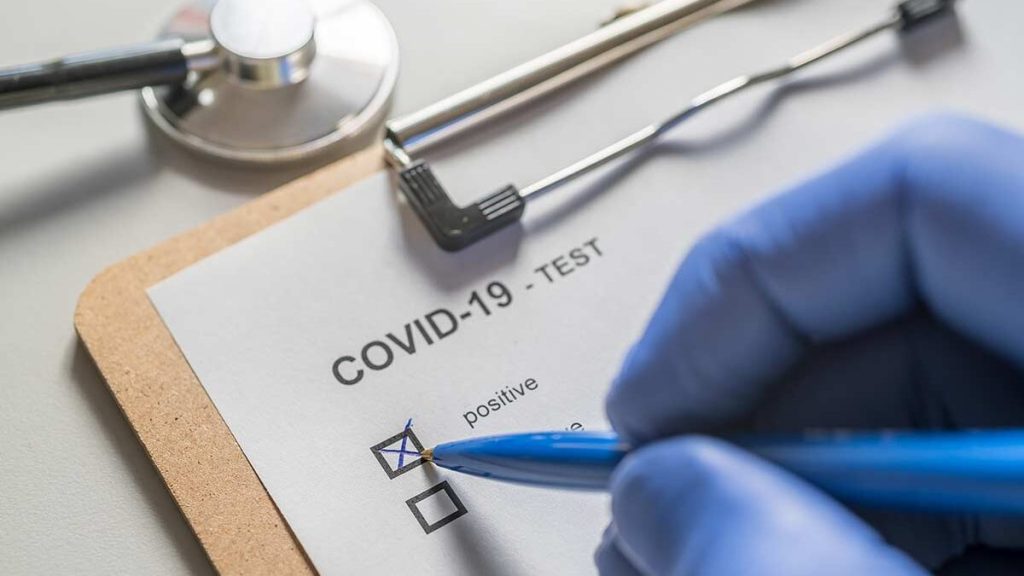COVID Testing: Understanding Antibody and PCR Testing

With the large number of COVID-19 tests being made available to the public, it is easy to get confused by the different testing options. Here is a brief summary of the different COVID-19 tests and which ones may be appropriate for you.
COVID-19/ PCR diagnostic tests
A COVID-19 diagnostic test determines whether you are currently infected with COVID-19. Also known as COVID-19 PCR test, this test confirms whether you are actively infected with the virus. The term polymerase chain reaction (PCR) refers to the lab technique being used.
What happens during this test
There are a number of ways to have a COVID-19 PCR test. The testing method used will depend on the site/location where you are having the test carried out.
- Nasopharyngeal swab – A long nasal swab is inserted into your nostril and a small sample is taken from the back of your nose.
- Oropharyngeal swab – A long swab is inserted into the back of your throat.
- Saliva test – You may spit into a tube to produce a saliva sample.
When to get tested
A COVID-19 diagnostic test is recommended if you have symptoms or you’ve had close contact with someone who tests positive for the COVID-19 virus or is suspected of having the virus. Houston COVID-19 PCR testing available at both LifeSavers ER locations.
What test results mean
A positive COVID-19 diagnostic test means that you have an active COVID-19 infection. As per CDC guidelines, you should self-quarantine for 10 days.
A negative COVID-19 test means that at this moment you have tested negative for the virus. If you have symptoms of COVID-19 but tested negative it is possible that you may have been tested too early or that you received a false negative result. In this case, continue to self-quarantine and speak to your doctor about getting re-tested in a few days.
How accurate is the test
PCR tests are very accurate when properly performed by a healthcare professional.
COVID-19 Antigen tests
COVID-19 antigen test detects certain protein fragments (antigens) from the COVID virus. An antigen test reveals if a person is currently infected with COVID-19. These tests are useful for identifying people who are at or near peak infection with the COVID-19 virus. Antigen tests are less expensive and generally faster than COVID-19 PCR tests. The downside is that they can be less accurate than COVID-19 PCR tests.
What happens during this test
A nasal or throat swab is used to obtain a sample
When to get tested
Antigen tests may be used in place of COVID-19 PCR diagnostic tests. However they are less accurate than PCR tests.
The Centers for Disease Control and Prevention (CDC) has advised people who have COVID-19 symptoms but test negative with this rapid antigen test to get a COVID-19 PCR test to confirm the results. Houston COVID-19 Antigen testing available at both LifeSavers ER locations.
What test results mean
A positive antigen test is confirmation of an active COVID-19 infection. However, these tests have a significantly higher rate of false-negatives (the test returns negative for the virus but the individual is actually infected with the virus). A COVID-19 PCR diagnostic test is the most accurate way to confirm whether you are actively infected with COVID-19 or not.
How accurate is this test
There is an increased chance of false-negative results meaning it’s possible to be infected with the virus but have a negative result. Confirmation of true infection status can be obtained with a COVID-19 PCR test.
COVID-19 Antibody test
This test determines whether you had COVID-19 in the past and if you now have antibodies against the virus. The antibody test is usually done after full recovery from COVID-19.
An antibody test is NOT a substitute for a COVID-19 PCR diagnostic test and cannot be used to diagnose someone with an active infection.
What happens during this test
A health care professional takes a blood sample, usually by a finger prick or by drawing blood from a vein in the arm. The blood sample is sent to the lab for processing.
When to get tested
Antibody testing is not recommended until at least 14 days after the onset of symptoms. If done too early, the results may give a false negative result. Antibody test results should NOT be used to diagnose someone with an active infection. Houston COVID-19 Antibody testing available at both LifeSavers ER locations.
What test results mean
A positive COVID-19 antibody test means that you were likely infected with COVID-19 at some time in the past. It may also mean that you have some immunity. However, there is a lack of scientific evidence regarding how long immunity to COVID-19 may last and how effective that immunity is. Therefore, continue to follow all precautions regarding mask-wearing and social distancing.
Emergency in Houston?
Life Savers 24 Hour Emergency Room is equipped to handle life threatening conditions quickly. Your emergency or concern is our priority! Life Savers 24 Hour Emergency Room is your Houston ER for immediate definite care. Do not hesitate to call us today or stop by one of our houston emergency room locations: Willowbrook ER, Heights ER, or Summerwood ER.
Life Savers 24 Hour Emergency Room is equipped to handle life threatening conditions quickly. Your emergency or concern is our priority! Life Savers 24 Hour Emergency Room is your Houston ER for immediate definite care. Do not hesitate to call us today or stop by one of our houston emergency room locations: Willowbrook ER, Heights ER, or Summerwood ER.






